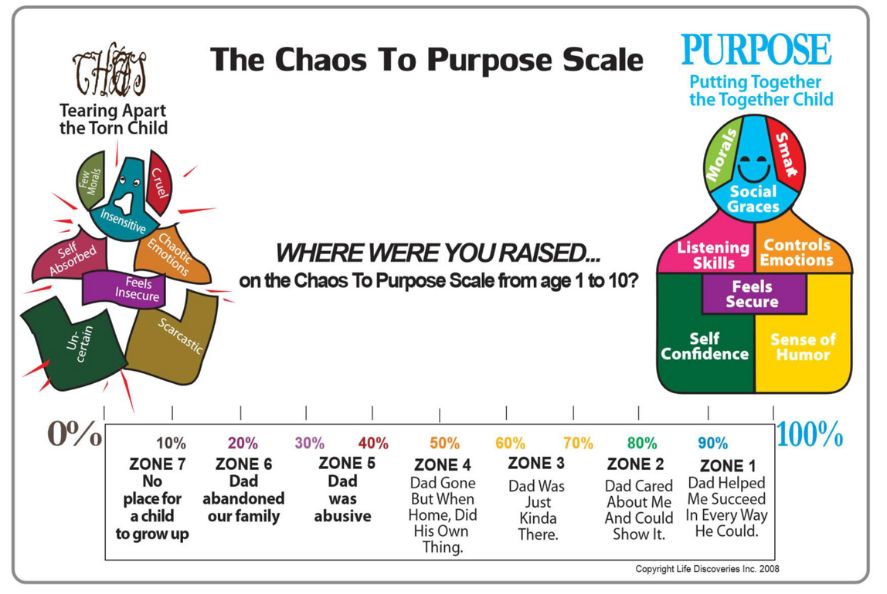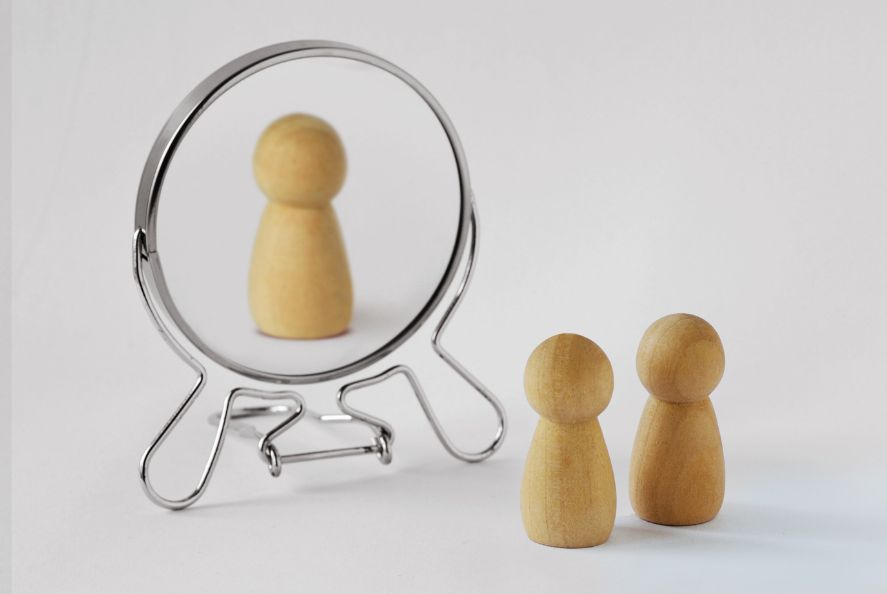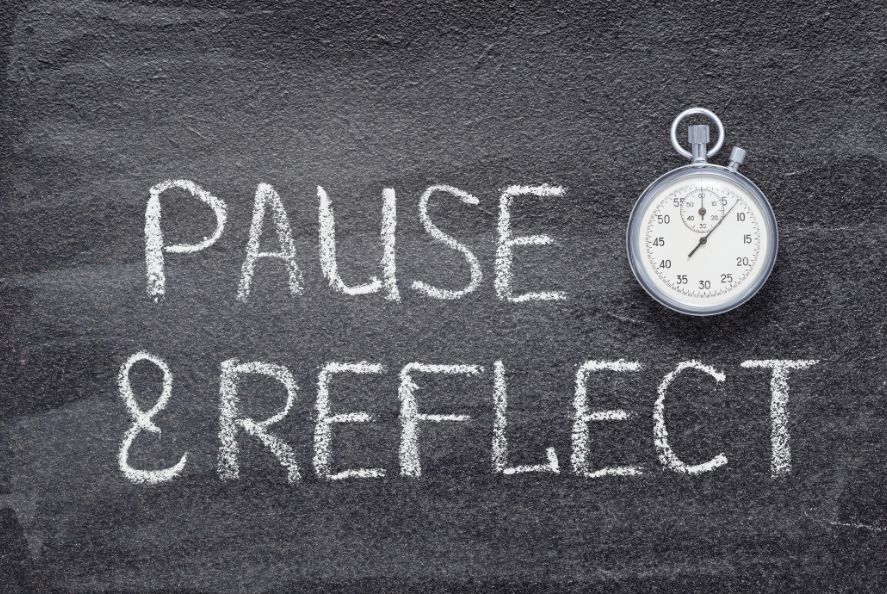When a spouse in midlife crisis (MLC) has an affair, it’s rarely about love—it’s about escape.
Just as reckless spending/drinking/gambling/drugs are temporary distractions from deep emotional pain so too is an affair.
Understanding this helps you respond with STRENGTH, not panic.
Healing from an affair involves more than just rebuilding trust, which can often feel overwhelming.
This article explores why affairs happen, common mistakes to avoid, and proven strategies you can use to heal your marriage.
Key Takeaways
- One person can heal a marriage (even after an affair).
- Manage your emotions through the method of "mindfulness" to rebuild trust.
- Avoid mistakes like obsessing over the affair, asking for details, or finding proof of an affair.
- Affairs stem from unmet need, childhood pain and even midlife crisis.
- Marriages can recover (and even strengthen) post-affair if you shift your mindset.
Emotional Infidelity vs. Physical Infidelity
There are two types of affairs.
Aside from physical affairs, they can also be emotional - and just as painful.
You fall into a guessing game of:
- Was it a one-night stand?
- Is it ongoing?
- Am I just imagining things?
This uncertainty leads to severe anxiety, stress and fear which often makes things even worse.
Table of Contents
Emotional Cheating
Physical Affairs
How To Repair a Broken Relationship
Why Do People Cheat?
Should You Confront Your Spouse?
Can a Marriage Survive Infidelity?
The End of Affairs
What Should You Do?
What If They Think They Are In Love?
Frequently Asked Questions
Emotional Affairs

Emotional affairs often begin with a coworker or friend who, (on the surface), seems to understand your spouse deeply, especially during a midlife crisis when unresolved pain surfaces.
Your spouse might feel, "FINALLY, someone gets me!"
But in reality, it's common for the affair partner to have experienced a similar pain or struggle, creating an instant, almost effortless connection.
That sense of understanding can make this new connection feel alive and intriguing for your spouse.
This shared hardship can feel like a safe space where they can vent, feel understood, and escape the stress of marriage.
(Yes, it’s common for the other person to be married too.)
It’s not always about attraction—it’s about feeling seen in a way they haven’t in a long time.
But keep in mind, this bond is only temporary—it’s built on shared pain, not stability.
By making changes in your mind and creating safe emotional space for your spouse, you can rebuild trust and become the partner they turn to again.
How to Repair a Broken Relationship

Create EMOTIONAL Safety to Heal After An Affair
Does your spouse feel safe with you? Can you honestly say they feel heard and accepted without judgment?
Ask yourself:
- Can they talk without fear of anger?
- Are they comfortable being vulnerable with you?
- Is your marriage tense or critical?
If your emotions are in control—ESPECIALLY when you’re hurt or betrayed—you won’t be able to create a safe space for your partner.
Start by managing your emotions.
Look up the term mindfulness online. You’ll find a wealth of resources that can help you regulate your emotions and stay grounded.
If you master the concept of mindfulness, when you’re baited you into an argument, you can resist the urge to engage.
For example, think of the word calm.
Calm isn’t just a word—it’s an energy.
The way you emotionally respond shapes every interaction in your relationship, and the word “calm” evokes a serene and steady energy.
Try this: When you feel triggered, silently say the word calm to yourself.
Picture a peaceful scene—a quiet lake, a gentle breeze, or a slow-burning candle.

Words like peace, ease, comfort, and relaxation have a real effect on your internal state.
The calmer you are, the more you shift the energy between you and your partner.
Over time, they begin to feel that difference—and THAT is when real change becomes possible.
This isn’t about excusing the emotional affair—it’s about positioning yourself as a safe, steady presence. That’s the first step in shifting the dynamic and becoming someone, your spouse can confide in again.
Physical Affairs

A physical affair is a major breach of trust, but your response shapes what comes next.
What To Do If You Suspect an Affair
Confront, get proof, or shift your focus?
If you suspect your spouse is cheating, your first instinct may be to confront them. At best, you might get an admission, giving you temporary satisfaction that your suspicions were correct.
But more often, they'll simply deny it, lash out, or shut down—pushing your relationship even further in the WRONG direction.
It’s easy to get consumed by negative thoughts—constantly wondering where your partner is, who they’re with, and what they’re doing.
But instead of letting suspicion take over, try a different approach...
Once again, shift your mindset. It's one aspect of this that you have TOTAL control over.
Here's a simple tip to help you heal after an affair has infiltrated your marriage.

Think back to a time when the two of you were truly happy together. Picture the details—the way he or she looked at you, the laughter you shared, even the little moments that made your connection special.
Let that memory take center stage in your mind.
Why? Because in life, we attract what we focus on most.
If your energy is locked onto suspicion and betrayal, you may (without even realizing it) create more of that.
But when you redirect your focus toward positive memories and emotions, you begin to shift the dynamic between you.
Now this doesn't mean you should ignore your pain or pretend nothing happened. Instead, what you are doing is CHOOSING to steady yourself emotionally before making any decisions.
Are you up for a challenge?
To heal after an affair, I encourage you to commit to shifting your focus for two weeks.
Don't think about the affair. Don't talk about it.
Replay your happy memory of the two of you together like a broken record, several times a day.
(If that's too difficult for you right now, you can choose a different memory that doesn't involve your spouse.)
When you consistently practice this shift in your mindset for 14 days straight, you might be surprised at the changes in your own heart and relationship!
How Do Affairs Begin?
Affairs Are Built on Fantasy, NOT Reality

Affairs often begin in a kind of fantasy world, where everything seems ideal for a moment.
It’s all the fun with none of the real-life struggles - like highlight reel, not a full movie. That’s why affairs are so tempting for some, but also why most don’t stand the test of time.
Most Affairs Are Temporary and Don't Last
Inevitably, reality WILL creep in because affairs typically have a short shelf life. It’s this intense spark that fades, and then what?
There’s a rush of sneaking around and the thrill of something new until…it fades. Once the shine wears off, the cracks show up fast. Maybe the secrecy gets old, or the logistics of juggling two lives become too much.
But don't take my word for it, the stats back this up:
Smith Investigation Agency stated that 65% of affairs end within the first six months. Only 10% turn into long-term affairs.
So while it might feel like this huge, permanent thing right now, chances are - they’re on borrowed time.
Why Do People Cheat?
There are four common reasons people cheat. Let's take a closer look at each of them.

1: Affairs Reflect Inner Pain
Often, the other person involved in the affair is struggling with their own issues.
This might mean they feel less attractive or less successful in ways that matter for a healthy relationship.
Affairs are often more about seeking validation or escape rather than building something meaningful.
On top of that, the other person is often a "Chaos Kid" who is carrying the same baggage as your spouse.
They've each got their own history of abandonment, abuse, or neglect, and they're looking for the same escape.
Now, imagine what happens when the initial fantasy fades.
It's the perfect storm.
When both people are chasing validation, happiness, the underlying emotional baggage surfaces, making it very hard for the relationship to stand the test of time.
2: A Symptom of Deeper Relationship Issues

Affairs often aren’t just about physical attraction or a momentary lapse in judgment. They can be a red flag for underlying problems within your relationship that have been building for years.
Whether it’s a breakdown in communication, unresolved conflicts, or a loss of emotional connection, an affair can signal that something at the core of your relationship is not what it needs to be.
3: Repeating Patterns from Childhood Trauma

It’s very common for the person who strays to unconsciously replay patterns rooted in their own deeply held childhood trauma.
If your spouse experienced abandonment, neglect, or abuse early in life, they might be drawn to familiar dynamics like those from their own childhood.
If their mother or father had affairs when your spouse was young, they are more likely to replay that "script" and either attract a partner who has an affair - or have an affair themselves.
(Even if they swore that would never happen.)
This isn’t about excusing behavior or placing blame - it’s about understanding that past pain and childhood experiences can shape present behaviors, often leading to choices that continue the cycle of pain for generations to come.
4: Low Self-Esteem and the Search for Validation

Let’s imagine that your spouse struggles with low self-esteem.
In a desperate attempt for validation, they may seek importance or desirability outside your marriage—especially if they don’t feel it within the relationship.
An affair can offer a quick boost—a sense of being seen, desired, or appreciated.
But this external validation is TEMPORARY, and it often leaves both “cheaters” facing even deeper issues once the initial thrill fades.
Understanding these factors might not erase the hurt, but it can offer some clarity on why the affair happened, which lays the foundation for rebuilding trust.
Knowing the roots of the problem is a crucial first step towards healing—whether that means rebuilding the relationship or finding a path forward that works for you.
The Shift in Dynamics when you Step up

When you embrace your role as the steady, confident "rock" in the relationship, something interesting happens.
The interaction between your spouse and their affair partner begins to CHANGE.
As you project calm and genuine confidence, that person who has come to invade your family, often starts to panic—they become jealous and even controlling.
Their reaction is a reflection of their own insecurities, and it brings to light the difference between fantasy and real, trustworthy connection.
I hope you’re starting to see how an affair, while painful to endure, is often not as solid or meaningful as the connection you have—(or can rebuild)—with your spouse – your life partner you shared vows with years ago.
Ongoing Infidelity: To Confront or Not

If the affair is ongoing, you might be tempted to confront “that family invader” or set hard boundaries.
But direct confrontation actually deepens the divide between you and your partner which ultimately leads to more harsh words, resentment and hostility.
Instead, stay emotionally steady. Focusing on controlling your own reactions has a greater impact on the two of you (in your unsteady emotional state) than you might think.
One-Time Mistake: Can Trust Be Restored?

Rebuilding trust after an affair isn’t easy, but it is possible. It takes time, emotional healing, and a real commitment from both of you to move forward.
If your spouse has admitted the affair was a one-time mistake, there’s a good chance they are at least somewhat open to rebuilding your relationship.
Now that doesn’t mean things will go back to normal overnight, but it does mean there’s a foundation to work with.
That said, if your spouse is in midlife crisis or in an ongoing or on-again, off-again affair, the situation is different.
In those cases, they may be emotionally disconnected, uncertain about what they want, or unwilling to commit to real change.
So, what’s the best approach?
Instead of chasing after reassurance or forcing conversations about the relationship, focus on yourself first.
The best way to influence the outcome isn’t through pressure or emotional pleading—it’s by becoming the steady, confident version of yourself your spouse once fell for.
- If they are willing to work on the relationship, focus on open, judgment-free communication and rebuilding emotional safety.
- If they are still caught up in the affair, avoid emotional outbursts or ultimatums.
Instead, focus on your own growth, stability, and mindset. People are naturally drawn to environments that feel safe and steady—become that environment—create that environment within yourself.
You, and you alone control how you appear in this situation. And THAT - more than anything, can shift the feeling or energy between you.
Avoid the Nitty Gritty Details

One of the biggest mistakes you can make is digging for every painful detail of the affair. It’s natural to want answers—to know when, where, and why it happened.
But pressing for details does more harm than good. The more you know, the more those images and thoughts replay in your mind, making it even harder to heal.
Instead of focusing on the past, shift your energy toward what really matters: rebuilding trust and creating a stronger connection moving forward.
Focus on the WHY behind the affair—not just the surface-level reasons, but the deeper emotional disconnects that may have played a role.
This doesn’t mean excusing what happened, but understanding it so that true healing can begin.
Ask yourself:
- What was missing in our connection before this happened?
- How much of my partner’s childhood contributed to this?
- Did his or her father struggle with infidelity? If so, they may be repeating a script from the past that was built-in long ago.
- How can we create a relationship where we both feel valued, seen, and safe?
Instead of letting pain pull you into an endless cycle of questions, channel that energy into rebuilding yourself.
The more emotionally steady and self-assured you become, the better foundation you’ll build to repair what broke—and find peace, no matter what happens next.
On-Again, Off-Again Affair?
In this scenario, the real question is this - how do you see yourself?
- If you see yourself as resentful, wronged, and offended, that’s how you’ll handle this situation—reacting from a place of hurt rather than strength.
- But if you see yourself as an Environment Changer—someone who controls their own emotions and shapes the “Environment” of their marriage—you’ll approach this with a mindset that leads to real transformation.
If you make this a way of life, YOU determine what happens next.
Will you let this situation define you, or will you take control of your own energy, your own mind, and ultimately, your own future?
Can a Marriage Survive Infidelity?

Rebuilding Trust After Infidelity
Rebuilding trust is like a train regaining momentum—it takes time. Before rebuilding trust with your spouse, you must first trust your own values and beliefs.
Define your WHY.
- Is it the love you still have?
- Is it your vows you would never break, or the family you believe in?
- What drives you to save this marriage?
This self-assurance becomes the foundation to rebuild trust in your relationship.
What If Your Spouse Shows Remorse?

When your spouse shows genuine remorse, it’s a significant step forward—especially if it isn’t typical for them to admit mistakes.
This admission means they recognize the pain they've caused and are expressing a desire to make things right.
In that rare moment of vulnerability, it's important to respond with calm and understanding.
Instead of reacting with further hurt or anger, try to be supportive. This gentle approach can help lay the foundation for an environment where real healing can begin.
Can Your Marriage Become Stronger After an Affair?
The answer is yes—although the journey is undoubtedly challenging, many couples will come out of this stronger after confronting infidelity.
By working through the underlying issues that led to the affair, you have a chance to build a more resilient and authentic connection.
It’s not about erasing the past, but learning from it and creating a future based on renewed trust and understanding.
The End of Affairs

Affairs often unravel gradually rather than in a dramatic showdown. Here are a few reasons why this happens:
Guilt Sets In
Especially if kids are involved, guilt can start creeping in and remind everyone of what truly matters.
The Fantasy Wears Off
Over time, your spouse may realize that the affair isn’t as fulfilling or exciting as it first seemed to be.
This is why staying calm and creating an emotionally safe environment becomes your greatest advantage.
By keeping your cool and maintaining a supportive space, you’re better positioned to navigate this challenging period and focus on healing.
Are They Both "Chaos Kids"?
It's common for your spouse and their affair partner to connect through shared pain or childhood trauma.
Below, you'll find my Chaos to Purpose scale, which can help you determine if your spouse is a "Chaos Kid" based on their upbringing.

As you redefine yourself as a calm, stable, and supportive presence in your partner’s life, the fantasy of the affair begins to fade, allowing chaos to seep into their relationship.
Over time, the excitement and thrill wear off, leading to more fights and drama.
You may notice your partner reaching out more…
"Hey, want to grab some pizza with the kids tonight?"
Once the affair partner senses this shift, jealousy and anger take hold—marking the beginning of the end of the affair.
How to Be “The Boyfriend/Girlfriend” Again

Reflect on the person you were back when you first met years ago.
Sometimes, when an affair occurs, you might wonder if your partner fell for a previous version of you.
It’s common for people to change over time—confidence can diminish, and you might not feel like the person you once were.
Notice these shifts and how they’ve shaped your relationship.
Maybe you put others first or got lost in work. Awareness is the first step to reclaiming the light, easy, and calm version of yourself before life’s demands took over.
1) Avoid Creating “Off-Limits” Topics
If there are subjects you just can’t seem to discuss, it might be because they trigger unresolved pain inside you.
Instead of shutting these topics down, take a little time to identify and work through that underlying hurt.
By reducing the tension associated with these subjects, you can create open and supportive communication.
2) Learn to Handle Conflict Constructively
When emotions run high, it’s tempting to let conflict escalate into an argument or even a fight.
A better, no-fail approach is to find calm, constructive ways to address disagreements rather than resorting to heated exchanges that only widen the gap between you.
3) Balance Emotional Mirroring

While it’s important to acknowledge and empathize with your spouse’s emotions (especially on tough days), you also need to maintain control over your own feelings.
Mirroring your partner’s emotions can help build connection but be careful not to let it overwhelm what you believe in for yourself.
Stay true to your core beliefs and values while offering empathy, ensuring you're both heard and supported.
Unlock the secrets to a more fulfilling relationship.
Discover the two essential needs of both men and women—download my free guide here: download the guide here.
What If Your Partner Thinks They're in Love with Someone Else?

It’s easy to get caught in a loop of hurt, anger, and resentment, constantly thinking about the affair.
But where you place your attention shapes your reality.
If you focus on betrayal, you are only creating more pain for yourself. Instead, redirect your energy toward becoming the person who naturally draws your spouse back—not by force, but by presence, confidence, and self-assurance.
They’re Confused and Don’t Know What They Want
If your Chaos Kid spouse is involved in an affair, especially during a midlife crisis or emotional turmoil, they are feeling lost. Chaos breeds confusion, and confusion feeds tension.
Instead of reacting emotionally, step back, shift the energy, and allow space for clarity to appear.
Time and a shift in emotion can bring some welcome relief to both of you.
And above all else, avoid putting pressure on your spouse.
This means limiting contact, diffusing arguments and taking a heal yourself, heal your marriage approach.
Right Now, the Affair Feels Good—But You Can Create Something Even Stronger
Affairs thrive on excitement, secrecy, and fantasy. But fantasies fade.
What lasts is emotional safety, trust, and a deep connection with each other.
You have the power to create a stronger pull—not through control or desperation, but by shifting your mindset and energy.
When you change your thoughts and actions, you change how your spouse and everyone else experiences you.
Instead of attempting to compete with the temporary high of an affair, focus on being the person your partner feels drawn to in a deeper, more meaningful way.
Instead of Fighting or Begging… Change Your Story

- A desperate reaction won’t work—but a new, confident approach will.
- Affairs are fleeting, but your life history and connection are real.
- You have a foundation your spouse can rely on. The affair person doesn’t.
- You can be the steady, confident presence that naturally pulls them back.
This isn’t about manipulation—it’s about becoming the version of yourself that they were drawn to in the beginning. Be the person who leads with strength, calmness, and certainty. That’s what an Environment Changer does.
If you truly love your partner, don’t walk away just because of an affair.
It’s temporary—your connection is real.
You’re the one with the shared history and the actions that show your love.
Your love is genuine; their feelings are NOT (despite what your partner might be telling you right now).
Frequently Asked Questions
What percentage of marriages survive infidelity?
The better question isn’t about statistics—it’s about whether YOUR marriage will survive.
Marriage struggles, including infidelity, are often rooted in childhood experiences.
Those who grew up in chaotic homes face deeper challenges in relationships, while those raised by loving, emotionally connected parents are less likely to seek validation through affairs.
If half of marriages end in divorce and many involve infidelity, focusing on survival rates doesn’t offer much help. What truly matters is understanding the underlying issues that lead to infidelity in the first place.
Through years of interviewing over 1,000 people in failing marriages, I’ve found one common theme: couples rarely talk openly about their childhood wounds.
Yet, unspoken pain from the past has a way of resurfacing in adulthood, often leading to a midlife crisis that wreaks havoc on relationships.
The key is awareness.
Recognizing shared struggles and openly discussing your past can help prevent infidelity and other destructive patterns.
When you take the time to share real, honest stories of childhood pain, you create a deeper bond.
That connection not only strengthens your relationship but also helps heal wounds from the first years of your life. Openness and honesty are what truly allow a marriage to withstand life’s challenges.
What are the causes of infidelity in marriage?
At its core, infidelity often begins when one partner feels they’ve lost the emotional connection with the other.
That emotional disconnection is where things start to unravel.
In my new book This Is Not The Woman I Married, men can find 21 specific signs that indicate they may be losing their wife’s heart, starting on page 3. I’m also working on a version for women.
Another significant factor behind infidelity is rooted in childhood experiences. If one partner’s parents were involved in infidelity, it can influence their beliefs and behaviors around relationships.
This can create a set of emotional patterns that increase the likelihood of infidelity, whether they engage in it or become a victim of it in their own relationships as adults.
Should I find proof that my spouse is having an affair?
When the person you love shows interest in someone else, it triggers a strong urge to correct the wrong and seek revenge.
But giving in to those emotions only brings more harm and takes away the love you truly want.
If you feel this is true, it's important to release the need for revenge quickly.
Seeking proof of wrongdoing is often about proving you're right.
The need to be right has destroyed more marriages than anything else, as it destroys the love between partners.
Instead of focusing on what your partner may be doing wrong, shift your focus to what they’re doing right.
Apply this mindset, and you won't fall into the trap of resentment, anger and pressure that you'll inevitably regret in the long run.
Conclusion
It may feel like you’re in a desperate situation because your spouse has done the unthinkable.
The ideas in this article are meant to guide you toward changing your mindset, not just your actions.
I encourage you to consider the road less traveled, as many people married to someone unfaithful choose to stay angry instead of embracing this path, which often leads to the destruction of their family.
I believe you have the strength to make the better choice.
Now it's your turn.
How has infidelity impacted your marriage? Let me know in the comments below.



